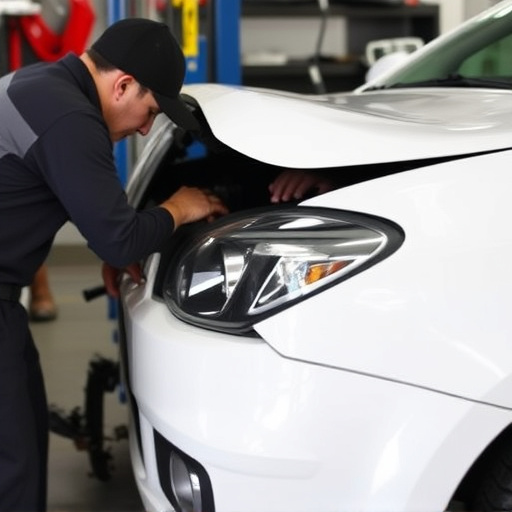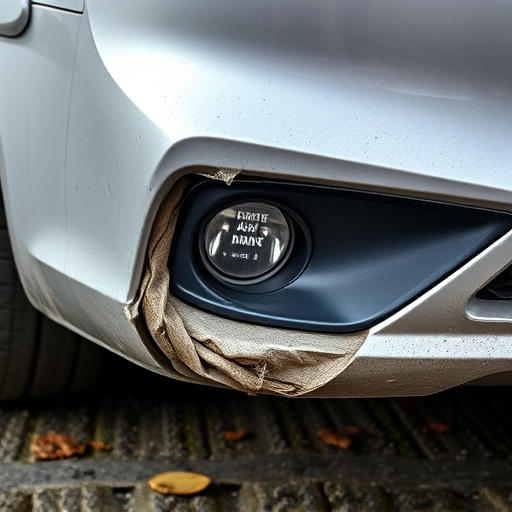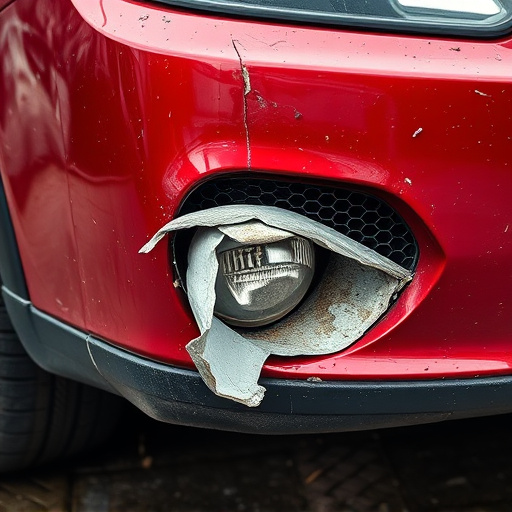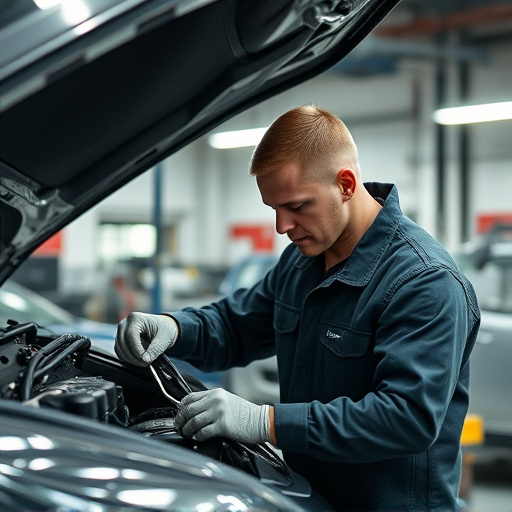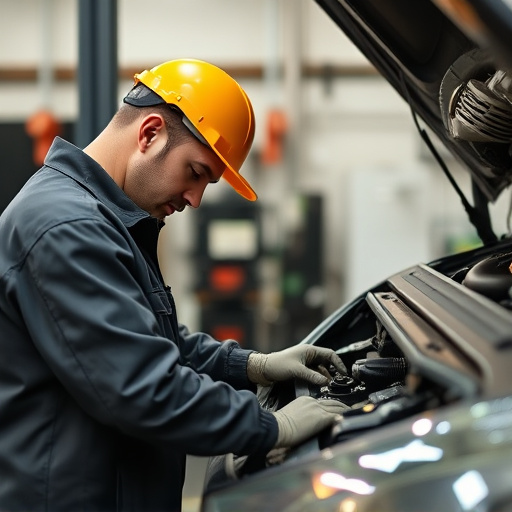Repair quality concerns are crucial in luxury vehicle repair, impacting safety and aesthetics. Balancing speed and precision is key; efficient management ensures high-quality collision repairs, enhances reputation, and satisfies customers in competitive markets by addressing structural issues and aesthetic imperfections. Skilled technicians using advanced tools optimize processes, improving resource utilization, reducing costs, and increasing customer satisfaction through clear communication and reliable service.
In today’s fast-paced world, efficient and prompt repairs are non-negotiable for maintaining asset value. Yet, repair quality often suffers due to lengthy turnaround times and inefficiencies. This article delves into the multifaceted issue of repair quality concerns, exploring their root causes and practical solutions. We analyze the profound impact of repair time on outcome quality, highlighting strategies to enhance efficiency and deliver superior repair results. Understanding these key factors is crucial for organizations aiming to optimize their maintenance practices.
- Understanding Repair Quality Concerns
- The Impact of Repair Time on Quality
- Enhancing Efficiency for Better Repair Outcomes
Understanding Repair Quality Concerns

Repair quality concerns are a critical aspect of any automotive service, particularly when it comes to collision repair and automotive restoration. Ensuring that repairs are done accurately and efficiently is essential to maintaining customer satisfaction and vehicle performance. In the case of luxury vehicle repair, where precision and detail are paramount, understanding these concerns becomes even more vital.
These issues can range from incorrect part replacements to inconsistent painting jobs, all of which can impact the overall aesthetic and safety of the vehicle. By recognizing and addressing these problems proactively, repair shops can enhance their reputation and provide a superior level of service. This is especially true in competitive markets where customers seek not just efficient but also high-quality collision repair services.
The Impact of Repair Time on Quality

In the realm of auto body repairs, particularly within bustling car body shops and expert auto collision repair facilities, repair time significantly influences the overall quality of work. Efficient auto body repairs demand a delicate balance between speed and precision. When repair times are lengthy, it can lead to increased chances of human error, impacting the final outcome. Skilled technicians understand that rushing through a repair might result in surface-level fixes that fail to address deeper structural issues, compromising long-term vehicle performance and safety.
Moreover, quick turnaround times without proper attention to detail may leave visible imperfections or unsightly paint jobs, which are significant concerns for customers. These repairs can devalue the car’s overall aesthetic appeal, especially in a market where first impressions matter. Therefore, managing repair time effectively while maintaining a commitment to quality is crucial for any reputable car collision repair service provider.
Enhancing Efficiency for Better Repair Outcomes

In the realm of vehicle maintenance, efficiency plays a pivotal role in ensuring satisfying repair outcomes. One of the primary concerns when it comes to repair quality is the time taken to complete the process. Efficient fleet repair services understand that swift repairs not only save time but also minimize disruption to the owner’s daily routine. By streamlining work processes and utilizing advanced tools, skilled technicians can significantly enhance the efficiency of vehicle body repair, including tasks like car dent repair.
This optimization translates into better utilization of resources, reduced costs, and, most importantly, higher customer satisfaction. Efficient repair facilities prioritize effective communication, clear timelines, and transparent pricing to manage expectations. As a result, they foster a reputation for reliable service, ensuring that customers feel their vehicles are in capable hands.
Repairing issues efficiently is paramount to maintaining high-quality standards. By understanding the critical factors influencing repair quality concerns, such as repair time and efficiency, organizations can implement strategic improvements. Optimizing these areas ensures better outcomes, enhances customer satisfaction, and ultimately strengthens the overall reliability of repair processes. Addressing repair quality concerns proactively is a key differentiator for any service-oriented business aiming to excel in today’s competitive market.




